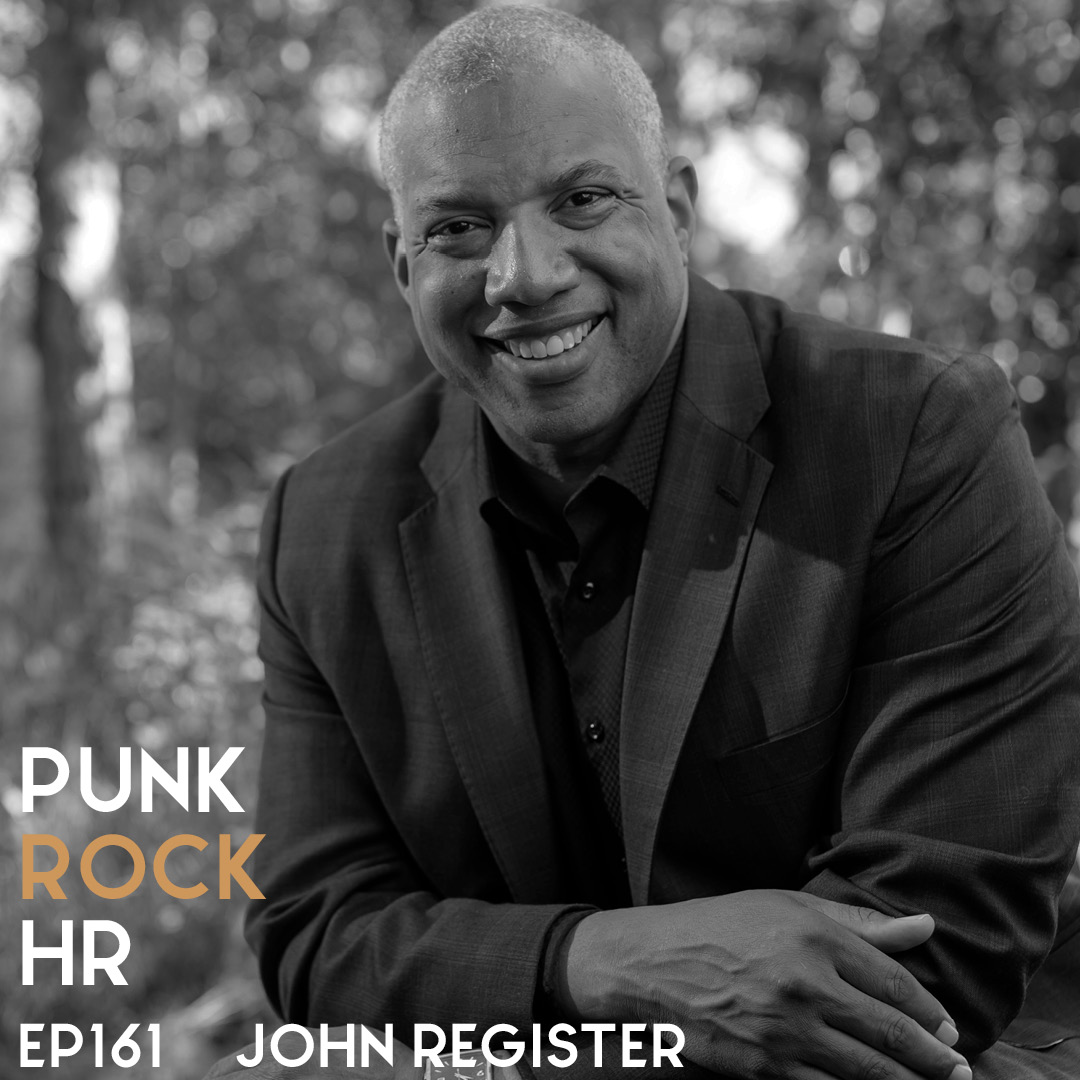
My guest this week is John Register, a change-mindset warrior who helps business leaders and individuals overcome adversity and fear, embrace a “new normal” mindset and win at life. John is one of those people who has an inspirational story that leaves you feeling ready to transform your outlook on life. He shares this story often as a keynote speaker and also in his book, “10 Power Stories to Impact Any Leader.”
In our conversation, John shares his story of adapting to his “new normal,” the power of storytelling, the dangers of ableism, and what all that has to do with the world of work. Listen to this episode to learn more about how you can change your mindset and overcome adversity.
Also, be sure to check out my free offer to try LinkedIn Learning for 30 days to see my courses on “How to Proactively Manage Conflict as an Employee,” “Mastering Self-Leadership” or any of the great courses LinkedIn Learning has to offer!
John’s Triumph Over Adversity
John’s story is nothing short of inspirational. As a young man, John was one of the fastest hurdlers in the world. On an ordinary day while training to take a run at the Olympic trials, his entire life changed when he injured his knee, resulting in amputation. The surgery altered the course of John’s life and left him with fear for what his new future would hold. “When my leg was first amputated, my wife came in and I’m thinking all kinds of crazy stuff,” John recalls. “Is she going to stay with me? Is my son still going to see me as his father? Do I still have a job in the military?”
One of the moments that helped John change his mindset was when his wife told him, “We’re going to get through this together. This is just our new normal.” That kind of support is invaluable, and it led John to come to the realization that only he could control his mindset and elevate the positive stories around him. Since his life-changing accident, John has continued to strive for success. Two years after first learning to run on his new artificial leg, John won a silver medal for the long jump at the Paralympics. John is on a mission to inspire all of us to adapt to our new normal and make a commitment to put first our desires for the future. “There comes a time where the individual has to commit to making the jump across the chasm. And no one can do that for you,” he explains.
The Importance of Storytelling
When was the last time you saw a data set and said “Yeah, I really connect with those numbers”? Probably never. Because we humans love a good story that evokes emotion. John Register loves a good story, too. In fact, he believes starting with a story is one of the most important things you can do. “It’s really important to lead with a story because that connects to the emotion, to the audience, to the brain,” John says. When it comes time to ask something of your audience, a good story will have them in a mindset that is prepared to relate and learn from your words.
A good story can set you apart in the world of work, too. As John argues, one of the most important questions you should answer with a story is, “Why are you helping other individuals to achieve and succeed?” In a world where everyone is offering outstanding products and services, what sets one apart from another is the story of success. John knows that we “measure what matters.” So how do you measure the things that matter but don’t have data points like love, compassion and empathy? You measure them with a story.
Eliminating Ableism in the Workplace
One of the many microaggressions that I frequently hear in the workplace are expressions of ableism, and John sees them, too, “One of the greatest challenges of my work that I do going forward in the disability community is fighting against ableism.” From hosting interviews on upper-level floors when elevators are broken to asking employees with disabilities to adapt to the office environment for the “team culture,” ableism has been embedded in the ways we live and work.
It doesn’t have to be that way. My hope is that HR can recognize these instances of adversity and find solutions that empower employees to do their best work without having to conform to ableist practices. Perhaps the pandemic has been a blessing, as it has shown that we really can adapt to working outside the traditional structure. Practices like remote work can be beneficial for all of us, including our workers with disabilities.